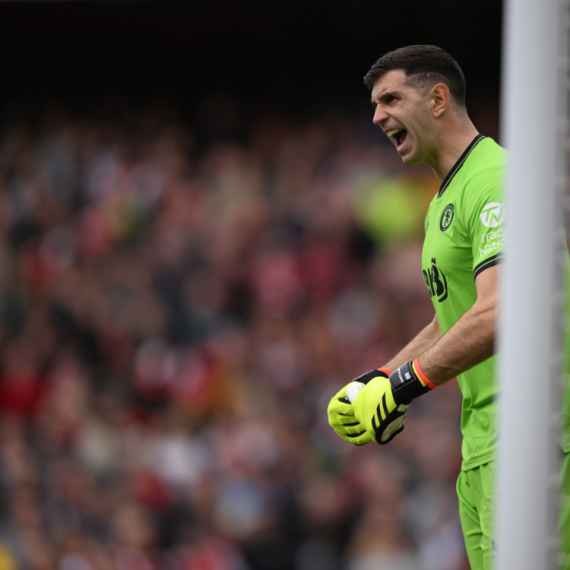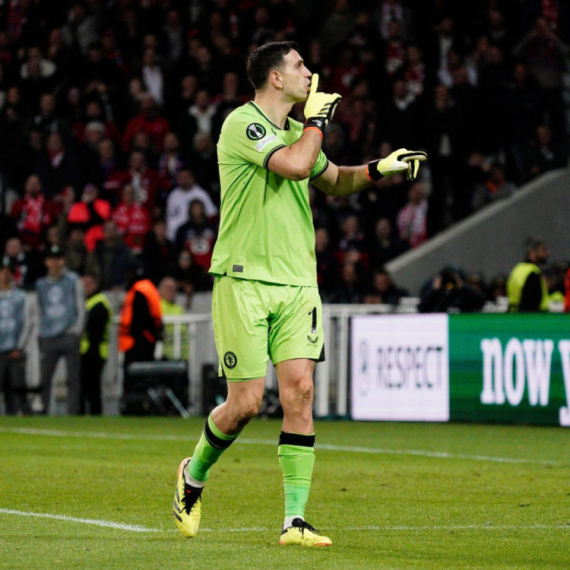Is Serbia really looking for Mladić?
Analysts are wondering whether the government is truly ready to fulfill its obligation and arrest Ratko Mladić.
Friday, 10.12.2010.
15:46

Analysts are wondering whether the government is truly ready to fulfill its obligation and arrest Ratko Mladic. Their reaction comes after claims that the government knew where the former military leader of Bosnia's Serbs was hiding in 2008, but failed to arrest him. Is Serbia really looking for Mladic? A New York Times report based on the leaked U.S. diplomatic cables reported said that the Serbian government knew where he was hiding. Analysts wonder how it was possible that members of the 2008 government from the Democratic Party (DS), the major party in the current coalition, had no information on where Ratko Mladic was hiding. Ten days after the whistleblower website WikiLeaks started releasing secret U.S. documents, the site released cables about the whereabouts of the Hague fugitive Ratko Mladic. This could once again spark a debate among politicians on who is responsible for the fact that the Hague fugitive is still at large. In his initial reaction, President Boris Tadic blamed former PM Vojislav Kostunica. But Kostunica's cabinet in the first half of 2008 had ministers from Tadic’s DS party. The president said that the current government had started its term in the second half of 2008, and that the previous government from the same year was lead by Vojislav Kostunica. However, such statements indicate that nobody in Serbia has seriously tackled the issue of arresting Ratko Mladic, believes military-political commentator Ljubodrag Stojadinovic. “I find it a bit strange that President Tadic, who is involved in these processes, is very reserved and insufficiently aggressive. I believe that he’s being defensive.” “His statement shows that he’s no different than Kostunica. That kind of defense against reality doesn’t even work with the politically naïve public, let alone where he should be responsible for the obligations Serbia accepted as its national priority,” Stojadinovic says. Since the report was published, no one from Kostunica’s opposition Democratic Party of Serbia (DSS) was willing to offer any comment. According to Civil Defense professor Zoran Dragisic the leaked information referred to the period of cohabitation between DSS and DS, and raised questions about the functioning of the 2008 government, and the role of DS ministers. “If they didn't know where Ratko Mladic was in 2008, it raises a serious questions about what they were doing, especially if you bear in mind that there was the National Security Council, and many important people from DS were in the Council. It raises the question of how the government even functioned and what DS actually did in the government,“ said Dragisic. “If it’s true that in 2008 Kostunica’ government knew where Mladic was, that it can be deduced that this fact was known to a number of people inside the security system, so it raises the question of whether this government controls the security system, and of course if he is telling the truth,” said the professor. “Bulatovic accused only in the media“ The cables also confirmed some speculations heard in the last couple of years about the former head of the Information-Security Agency (BIA), Rade Bulatovic. He allegedly knew where another Hague fugitive, Radovan Karadzic, was hiding six months before he was arrested, and after Kostunica left power he tried to trade that information with the new government for an ambassadorial post. Ljubodrag Stojadinovic believes that Vladimir Vukcevic, the War Crimes prosecutor, could know "a bit more about this". “He has already stated one version where Rade Bulatovic tried make a deal with him. Instead of speaking about it in public, he should have called Rade Bulatovic for questioning and then we would have more information on what really went on,” said Stojadinovic. Zoran Dragisic noted that the ex-BIA head is still in Belgrade, and that no one from the competent institutions, even though rumors have been circulating, asked any questions. “Rade Bulatovic wasn’t appointed as the ambassador in Syria, as far as I know, today he lives in Belgrade and he is a lawyer. Something’s wrong about that story - either it’s not true, or in the meantime somebody tricked Bulatovic,” said Dragisic. “Some things are seriously incriminating for Rade Bulatovic, however, it is interesting that, apart from some accusations in the media, no one dares to call Bulatovic to any kind of responsibility,“ he said. The cables also said that the U.S. has allegedly turned its back on efforts to find the Hague fugitives, and even that some Russian officials help them hide. Stojadinovic and Dragisic differ on this – while Stojadinovic emphasized Serbia's responsibility for arresting the Hague fugitives, Dragisic is convinced that "somebody from abroad" is implicated in helping Mladic hide.
Is Serbia really looking for Mladić?
A New York Times report based on the leaked U.S. diplomatic cables reported said that the Serbian government knew where he was hiding.Analysts wonder how it was possible that members of the 2008 government from the Democratic Party (DS), the major party in the current coalition, had no information on where Ratko Mladić was hiding.
Ten days after the whistleblower website WikiLeaks started releasing secret U.S. documents, the site released cables about the whereabouts of the Hague fugitive Ratko Mladić.
This could once again spark a debate among politicians on who is responsible for the fact that the Hague fugitive is still at large.
In his initial reaction, President Boris Tadić blamed former PM Vojislav Koštunica. But Koštunica's cabinet in the first half of 2008 had ministers from Tadić’s DS party.
The president said that the current government had started its term in the second half of 2008, and that the previous government from the same year was lead by Vojislav Koštunica.
However, such statements indicate that nobody in Serbia has seriously tackled the issue of arresting Ratko Mladić, believes military-political commentator Ljubodrag Stojadinović.
“I find it a bit strange that President Tadić, who is involved in these processes, is very reserved and insufficiently aggressive. I believe that he’s being defensive.”
“His statement shows that he’s no different than Koštunica. That kind of defense against reality doesn’t even work with the politically naïve public, let alone where he should be responsible for the obligations Serbia accepted as its national priority,” Stojadinović says.
Since the report was published, no one from Koštunica’s opposition Democratic Party of Serbia (DSS) was willing to offer any comment.
According to Civil Defense professor Zoran Dragišić the leaked information referred to the period of cohabitation between DSS and DS, and raised questions about the functioning of the 2008 government, and the role of DS ministers.
“If they didn't know where Ratko Mladić was in 2008, it raises a serious questions about what they were doing, especially if you bear in mind that there was the National Security Council, and many important people from DS were in the Council. It raises the question of how the government even functioned and what DS actually did in the government,“ said Dragišić.
“If it’s true that in 2008 Koštunica’ government knew where Mladić was, that it can be deduced that this fact was known to a number of people inside the security system, so it raises the question of whether this government controls the security system, and of course if he is telling the truth,” said the professor.
“Bulatović accused only in the media“
The cables also confirmed some speculations heard in the last couple of years about the former head of the Information-Security Agency (BIA), Rade Bulatović.He allegedly knew where another Hague fugitive, Radovan Karadžić, was hiding six months before he was arrested, and after Koštunica left power he tried to trade that information with the new government for an ambassadorial post.
Ljubodrag Stojadinović believes that Vladimir Vukčević, the War Crimes prosecutor, could know "a bit more about this".
“He has already stated one version where Rade Bulatović tried make a deal with him. Instead of speaking about it in public, he should have called Rade Bulatović for questioning and then we would have more information on what really went on,” said Stojadinović.
Zoran Dragišić noted that the ex-BIA head is still in Belgrade, and that no one from the competent institutions, even though rumors have been circulating, asked any questions.
“Rade Bulatović wasn’t appointed as the ambassador in Syria, as far as I know, today he lives in Belgrade and he is a lawyer. Something’s wrong about that story - either it’s not true, or in the meantime somebody tricked Bulatović,” said Dragišić.
“Some things are seriously incriminating for Rade Bulatović, however, it is interesting that, apart from some accusations in the media, no one dares to call Bulatović to any kind of responsibility,“ he said.
The cables also said that the U.S. has allegedly turned its back on efforts to find the Hague fugitives, and even that some Russian officials help them hide.
Stojadinović and Dragišić differ on this – while Stojadinović emphasized Serbia's responsibility for arresting the Hague fugitives, Dragišić is convinced that "somebody from abroad" is implicated in helping Mladić hide.














































Komentari 8
Pogledaj komentare